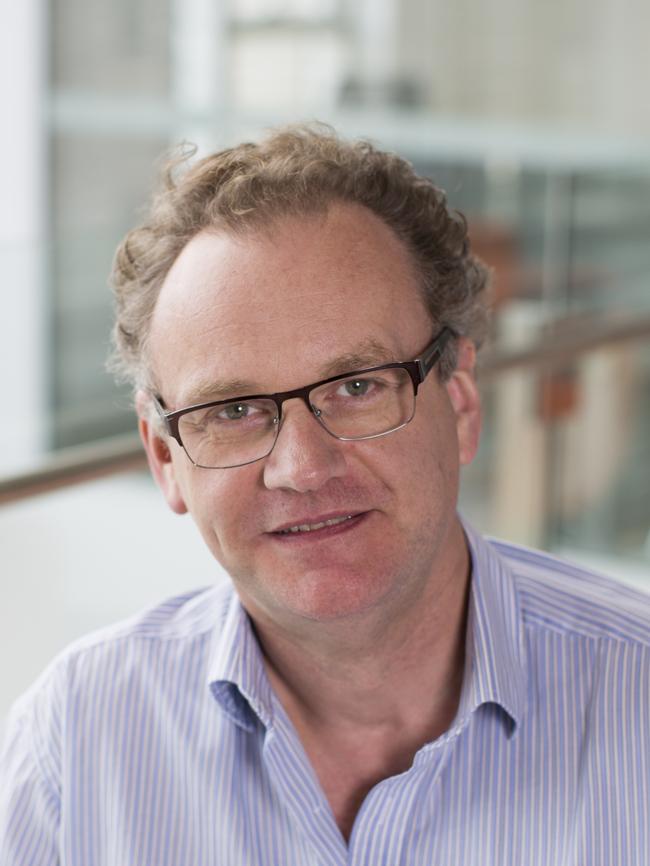Battery start-up targets renewable storage boom with lithium alternative
A Sydney battery start-up is targeting soaring demand this decade for energy storage as a transition away from fossil fuels picks up pace.

A battery start-up spun out of the University of Sydney plans to use a London sharemarket listing to accelerate a push for its technology to be used for both power generation and electric vehicles to meet soaring demand.
Gelion, which sealed a British bourse listing on November 30, aims to capitalise on a new technology created by its founder Professor Thomas Maschmeyer, which uses zinc bromide batteries instead of the lithium-ion variety.
It’s also using funds from the initial public offering to push ahead with its mobile energy unit, which uses silicon-based additives to boost the performance of lithium batteries by up to 60 per cent, offering exposure to the booming electric market for cars, trucks, drones and aircraft.

Europe’s energy security crisis, which has seen prices skyrocket for a string of raw materials, has underlined the appetite for reliable battery storage and generation, according to Gelion’s newly appointed chief executive Hannah McCaughey.
“Right now, we’re tapping into huge demand. We’re talking to some big European players because of the crisis in Europe where energy security is now the big issue and because we can now fill a gap that traditionally gas-fired power stations have fulfilled,” Ms McCaughey told The Australian.
“We are a very interesting element for energy security globally. And we expect to partner with major manufacturers all around the world to meet global demand.”
Global lithium-ion battery capacity could rise more than fivefold to 5500 gigawatt-hours between 2021 and 2030, consultancy Wood Mackenzie predicts, but a lithium supply crunch is pushing buyers towards alternative technologies.
Gelion’s pitch is it can easily access zinc, sidestepping lithium supply chain issues and providing a hedge for buyers, while its batteries are competitive, last longer and don’t require expensive cooling and maintenance systems.
They also don’t catch fire, a mounting issue after a blaze hit one of Tesla’s biggest battery projects in Victoria in 2021.
Gelion’s Endure zinc bromide battery is being manufactured locally at Battery Energy’s Fairfield factory in western Sydney, with Gelion able to tap into existing lead-acid production plants rather than building bespoke facilities.
“We don’t have to build whole new factories to produce this and we can adopt existing brownfield sites and new industry from existing infrastructure,” Ms McCaughey said.
“It’s good for the carbon output and life of the product, but it’s also great in terms of taking existing businesses and giving them a fresh life under the energy transition, which I think is an incredibly attractive proposition to businesses, communities and governments alike.” The Australian executive joined Gelion after just under two years in charge of gas pipeline giant APA’s next-generation energy business and also held senior roles at Ausgrid and British Gas.
Asked about the cost of Gelion’s batteries, Ms McCaughey said: “In order to produce a Gelion battery from an existing lead acid manufacturer it would cost $US16m. “The equivalent for a lithium ion gigawatt-hour facility is $US132m because you have to build the facility.
“We have also predicted that when we get to gigawatt scale, we will be able to compete with lithium on price.
“So obviously we have to scale to be able to do that, but because of the cheaper components, we absolutely think we will be price-competitive with other technologies as we go forward.”
Consultancy Rystad forecasts global battery demand could surge and reach 15 times the levels seen in 2021.
EVs will be the biggest source for future battery growth, accounting for 55 per cent of total demand by the end of the decade, with stationery storage about 29 per cent of the total market, according to Rystad.
Professor Maschmeyer, winner of the 2020 Prime Minister’s Prize for Innovation, was named one of the nation’s top 100 Green Power Players by The Australian in February.
The University of Sydney has also retained a stake in Gelion.




To join the conversation, please log in. Don't have an account? Register
Join the conversation, you are commenting as Logout